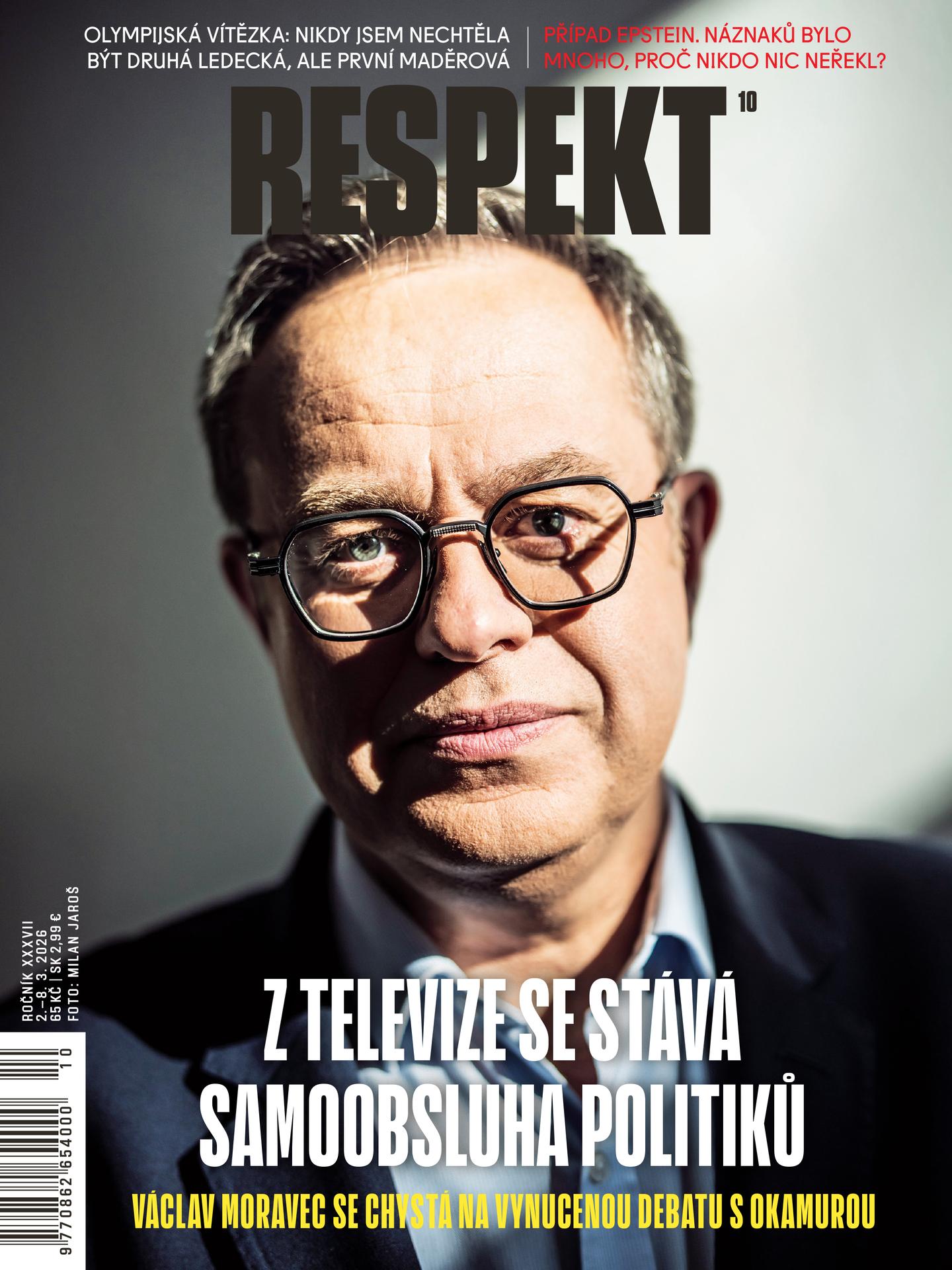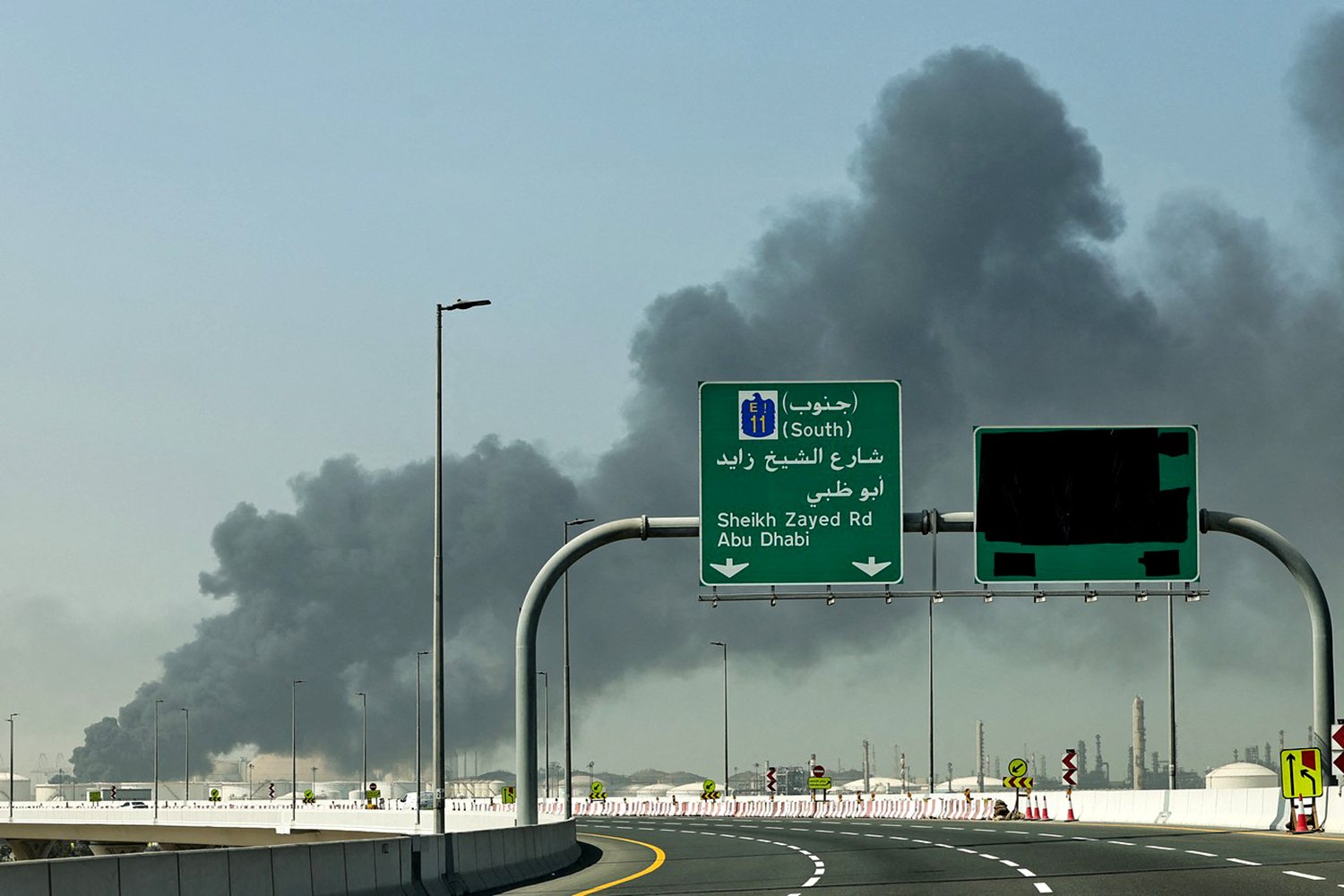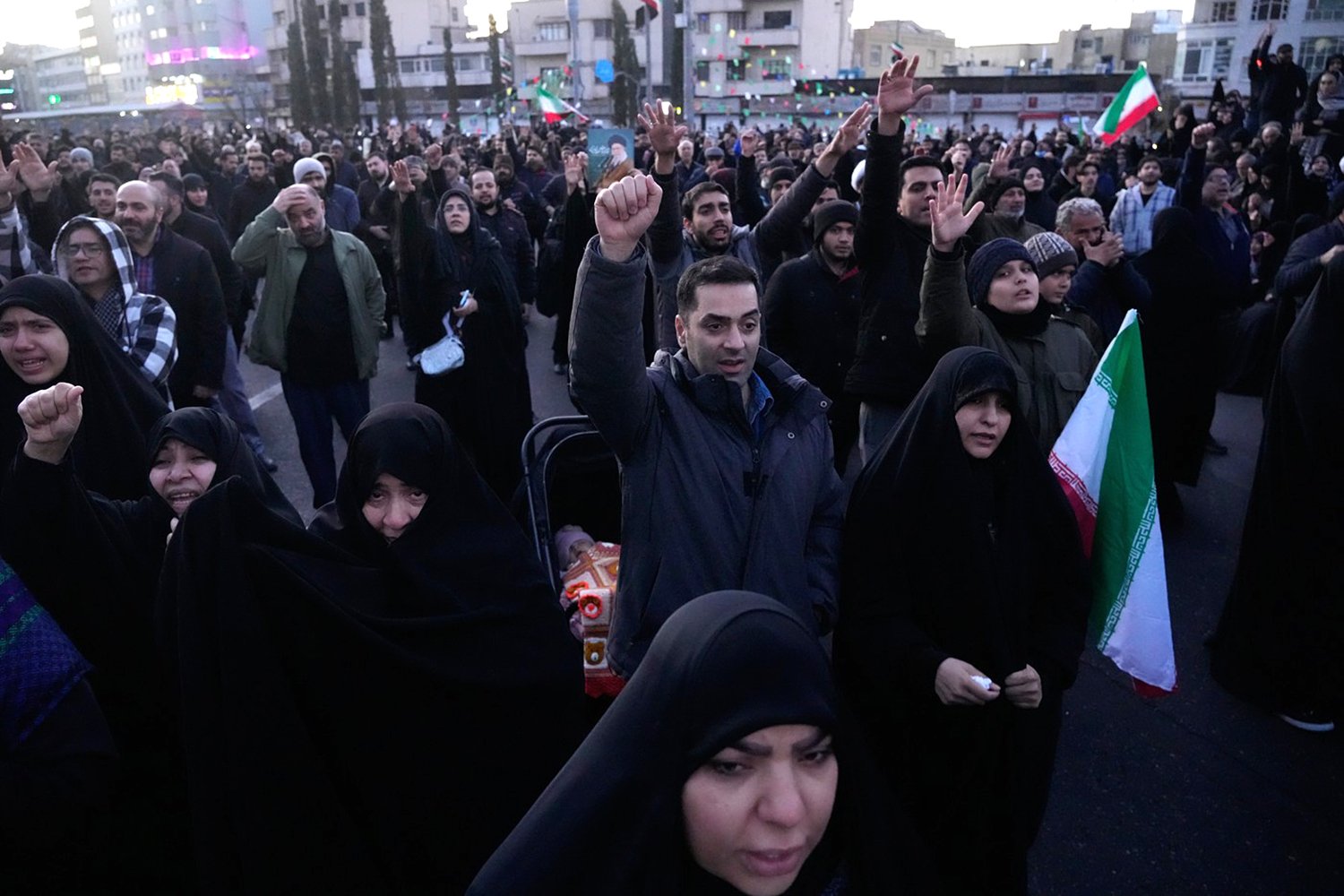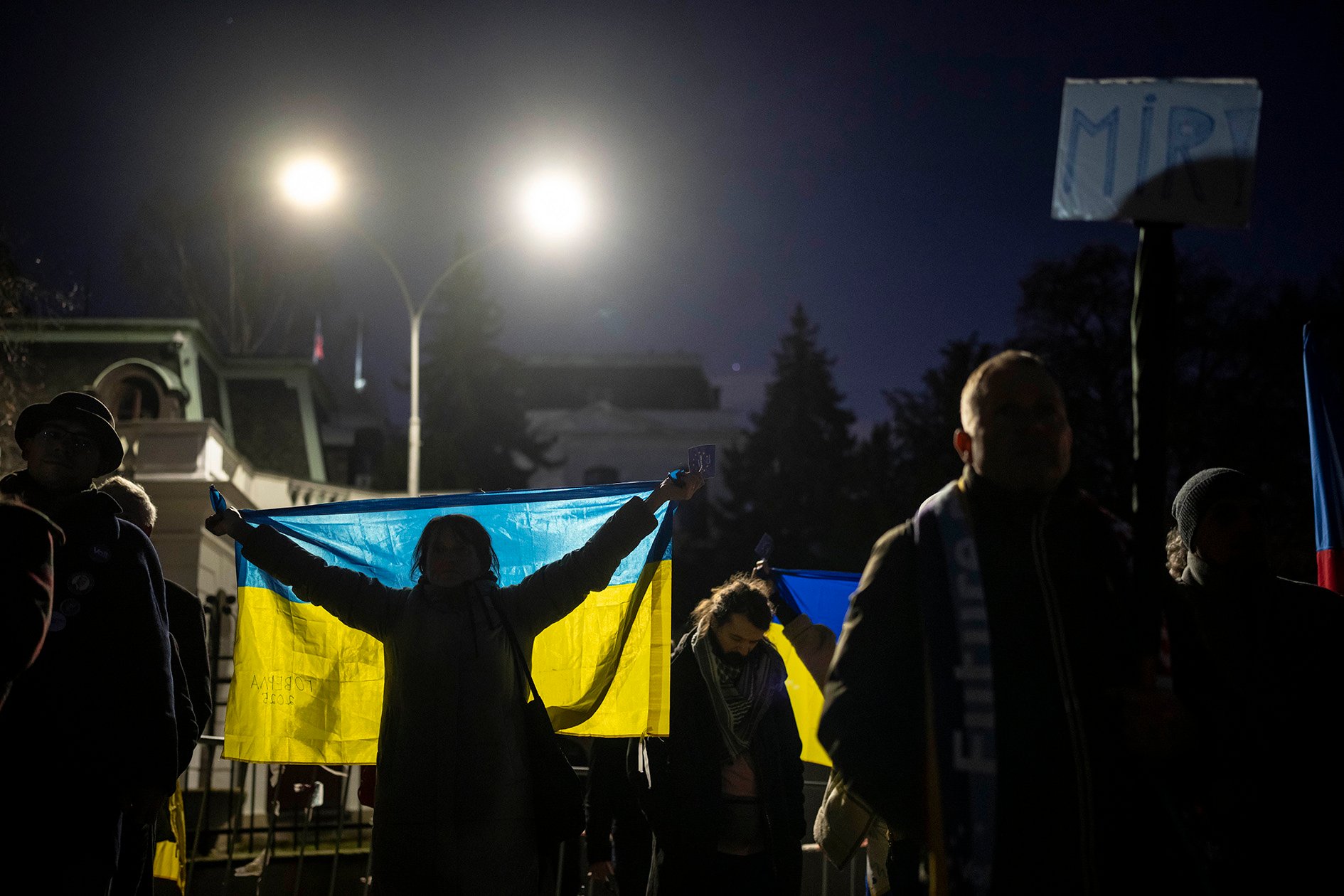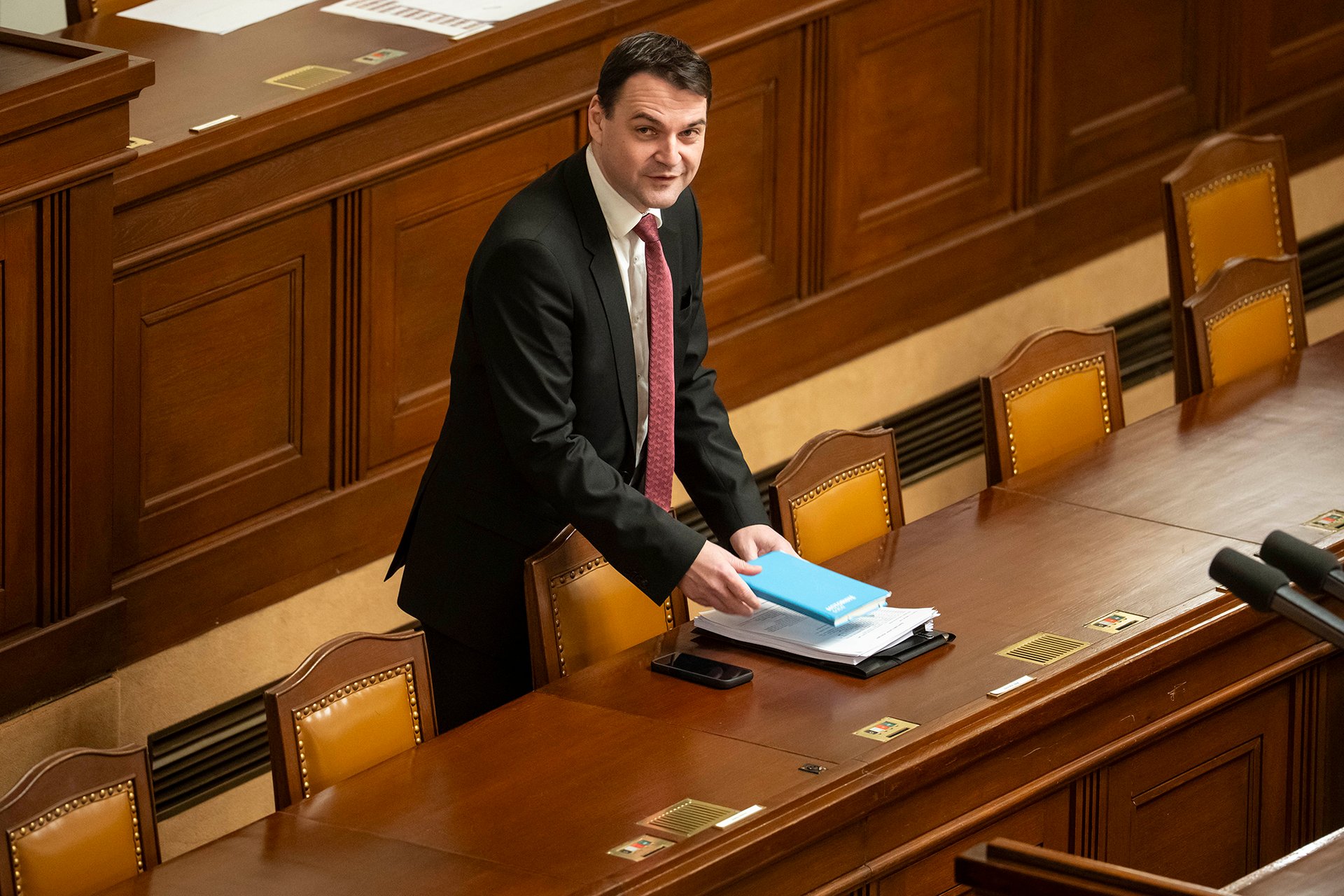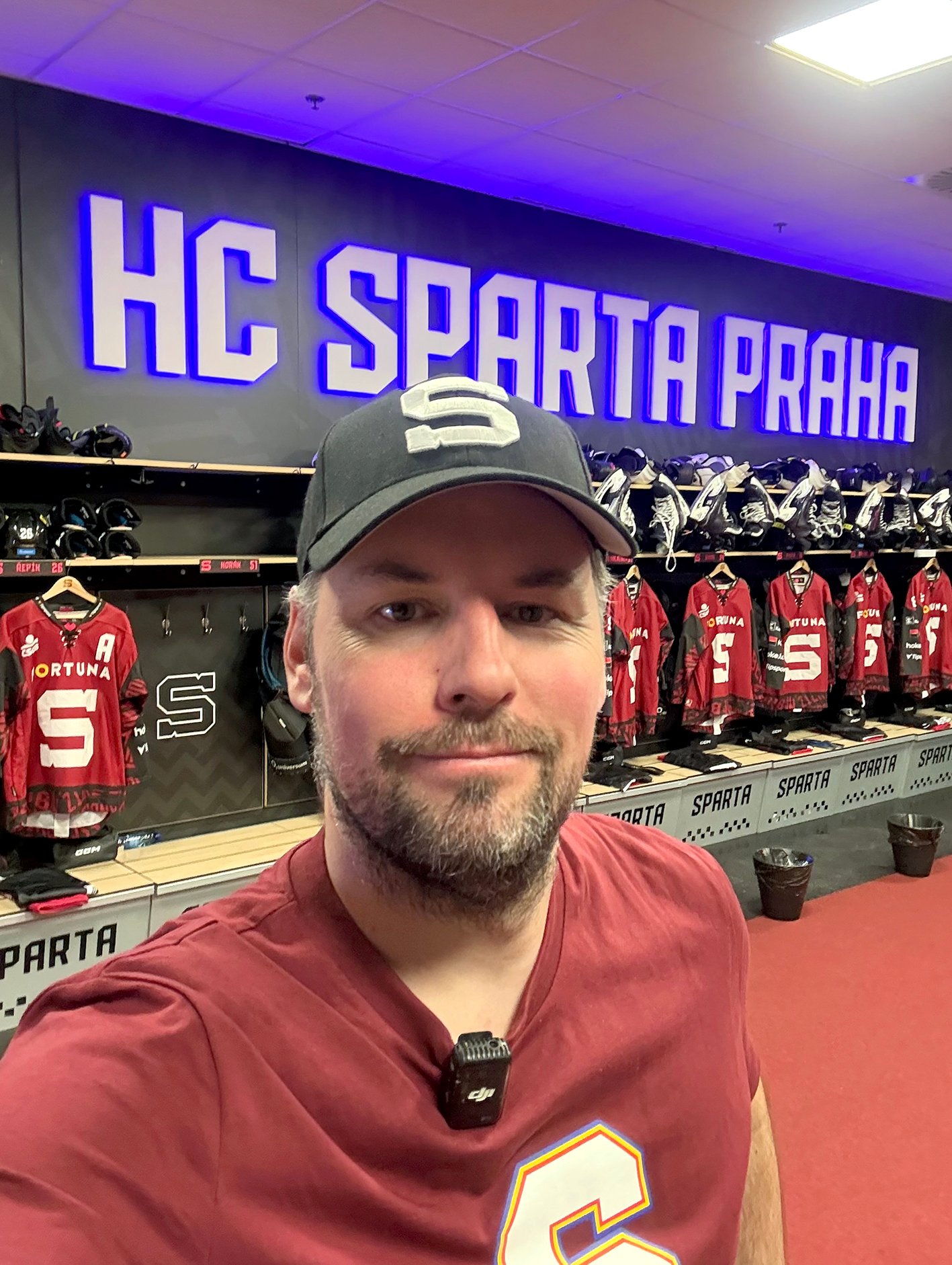Cruel Slovakia
Many local newspaper-readers had a most unpleasant breakfast after the report about Romany children eating grass in eastern Slovakia was published. It came from the inspectors of the International Organization for Migration (IOM), who themselves saw this kind of scenes last year in September.

Many local newspaper-readers had a most unpleasant breakfast after the report about Romany children eating grass in eastern Slovakia was published. It came from the inspectors of the International Organization for Migration (IOM), who themselves saw this kind of scenes last year in September. Since that time it has been snowing. And so the question appeared of what's happening in those places of heartbreaking poverty now.
The treasure-hunters


Karel Novak of the governmental representative for Romany Agenda Office has seen pasturing children several times. „Yes, it was happening just under our windows“ he says. „For some time their main nourishment was sorrel. Then they had terrible diarrhea, some of them even ended up in hospital.“ Now the situation is a bit better. Since September some schools - depending on the good will of the municipalities - offer food to the children from families suffering from material distress almost for free.
Rudňany have three and a half thousand inhabitants. Nearly a half of them live in a camp founded some 25 years before in the place of a former ore mine. One of the tens of hovels - right next to the only source of water for the whole settlement, a crooked pipe sticking out of the ground - belongs to Zdena Pokutová and her husband. It's much more comfortable inside than this 3×3m building promises from the outside. Logs ranged around a small stove, a clean cloth on the table, two couches that serve both for sitting and sleeping. Mrs. Zdena is one of the few inhabitants of the camp who have work. She has been working for the second year now - thanks to the Prague's humanitarian organization Člověk v tísni project, introduced by above-mentioned Karel Novák - as a medical assistant. She has her duty in the doctor's waiting room and after work she provides first aid for people in the camp. „That's what's is this bag for,“ Zdena points at a bag full of medicaments and bandages. „I got it from a young man from Prague. Look, there are quite a lot of things. I even had to buy some of medicaments myself.“ Last year Mrs. Zdena working as an assistant has been earning five and a half thousand crowns a month. After the last year's governmental reforms she works for the so-called activation bonus (see the box below) - 1500 crowns for those, who (apart from taking social benefits) accept some public work. „The mayor said that he didn't have more money for me now. But he promised to give me work as soon as he would be able to. I hope it will work out,“ says Mrs. Zdena. Thanks to her earnings and her husband's pension they get by, but in the camp they're rather exceptional. After the last year's reduction of the social benefits numerous families live on about 2000 crowns per month. That's why many of the inhabitants are in debt with usurers. They are the only ones who are willing to lend money to the poor campers in extreme situations (such as when they need to pay the funeral of a family member), but due to their exorbitant interest rates they soon take all the debtor's social benefits, lending him back about a quarter of the sum to get by.
Desider's song
The settlement in the suburbs of the east-Slovakian Trebišov is one of the biggest and the most miserable at once. After the diminishment of social benefits the unrests and food looting began. A ragged housing unit on the camp border, home of one of the local community leaders Šándor Desider, offers (regarding to local conditions) comfortable accommodation. It has running water and the walls keep the heat provided by a small stove. Further in the camp the scene changes. In deep mud between metal plate shanties and half-destroyed dwelling units people are dragging, carrying bundles of firewood on their backs. In one of the entrances stands a young man, holding a bag of toluene to his face.
Šándor Desider (35) is among the most capable people of the camp. The reason is that he didn't grow up here. He has fallen through into this place from the normal world. He grew up in a flat owned by a nearby agricultural cooperative, his parents' employer. He began to study agricultural engineering and had a clear notion of his future. Then his father died and mother had to wait a year and a half for the widow's pension. He had to stop his studies and to earn his and his brothers and sisters living. In the early nineties his existence got another strike. A new owner of the privatized farm dismissed the most of the employees, and so he lost his work and flat all at once. Nobody wanted to employ a half-educated Romany, and by that time also a father of two children. The town assigned him a dwelling unit in the camp. Through many exchanges he finally gained his living in the comfort of a housing unit.
„All TV stations have been broadcasting reportages of the looting in Trhoviště and then in Čierna pri Čope. Our people, were watching and said to themselves: We have to stand by one another, to go together for our goal - the increase of the social benefits,“ Šándor Desider brings last years riots back to his mind. „And as they were looting they were eating. They were hungry. Then the policemen in balaclavas broke in here, going from flat to flat and beating everyone. They wouldn't let our people go to the doctor to take care of their wounds.“ The protests have in the end spread only to six of the six hundred and sixty Slovak Romany settlements.
„Let's go, Ingrid Zubková has just come,“ Šándor Desider gets up and leads us to the next entrance, where the community center is. Young Romany psychologist from Trebišov has his admiration. „Do you think it was the police who stopped the looting by beating us? No. It was Ingrid Zubková. She stopped it when she brought us food. I have gone to every family myself and told them to collect the food,“ he says. „And then she has stayed here. She's our hope.“ A well-built young woman - until this year's holiday a teacher at special school - enters the door with a computer in her hands, and even before she greets the people, who have immediately gathered around her, she thinks of where to put the new computer and where the old one should come.
She describes her one-year's work in the camp in temperate words, as a matter of course. „The impulses come from the inhabitants, I only write projects and try to get money,“ she says. Apart from giving work to several field social workers - one of them is Šándor Desider - her association have trained and employed more people as medical surveyors. She's trying to motivate the children, who come to the community center, to study. „I tell them: Think about the conditions you live in and why is it so,“ says Ingrid Zubková. The young psychologist's interest in the community also gave new energy to Šándor Desider. „We could buy the land outside the camp, build their green-houses and grow vegetables,“ he's planning. „For our own use and for sale. The money could then be used for demolishing these awful shanties and for building a better housing.“
David leads his people out
In the settlement at Svinia village near Prešov, the Romanies have been dreaming Šándor´s dream about leaving their hovels since the midnineties. It was then that an ethnology student Alexandr Mušinka visited them for the first time with his Canadian professor David Scheffel, who wished his students, coming from his country, to learn about the culture of middle Europe and to see also a Romany camp. „When we got off the bus in the open space in the middle of the camp, we were goggling our eyes out at the poverty that was around us,“ recalls Alexandr Mušinka, now the employee of the Regional Romany Agenda Center in Prešov. Naked children, water from one hose for all, dirt and waste everywhere. For him as well as for David Scheffel this was a fateful visit. While a Prešov native Mušinka decided not to study an unknown community somewhere in Africa when he had one right under his nose, Scheffel decided to act. To do anything to improve the life conditions of local people. Since then they have both been coming to the camp regularly and step-by-step they have gained the trust of the Romanies. „He took our children in the city.“ explains one of the local leaders Ignác Červeňák how Alexandr Mušinka won him over. „And he brought his daughter to spend her holiday here with us.“ In 1998 the flood washed the camp away. After that there was a better possibility of getting money and their plans of a new and better living began to take a clearer shape. Canadian governmental foundation gave to David Scheffel an unbelievable sum of 150 millions crowns, the European Phare fund promised to give money for building of the water-supply system and sewerage. The Romanies in Svinia began to dream of a better life. They put their camp in order, they were learning the carpenter's craft, women were making wax candles and crochet bags. They also began to save money and everything was going well. Only one thing was to be done. To persuade the municipal council of a necessity to change the territorial plan and turn the fields into plots.
The supporters of the project - the mayor and his colleagues from SDK - slightly outnumbered its opponents from HZDS of former Prime Minister Vladimir Mečiar. But being only a month before the municipal elections, the mayor made a fatal mistake. He pronounced, that the new-elected politicians must decide about such a fundamental case. After the election HZDS gained majority in the municipal council, and so the territorial plan remained unchanged. The first act of the new council said: Nothing is going to be built. Mr. Mušinka even now can't reconcile with the attitude of the white majority. „I thought, they would act on common sense,“ he says. "According to our survey among the people the four major problems of the community are Romanies, unemployment, water supply and sewerage. We could solve all four with our project. The only condition for the investors was, that they should employ locals. And we would have built the water supply and the sewerage both for the camp and for the municipality as for European money.
It's Sunday, shortly after noon, and the Svinie mayor Agnesa Uličná is on her way home from the church. Being questioned why she has banned the project she only shakes her head: „I will not give you any information,“ and disappears into the doors of her house. Her deputy Milan Kandra is more communicative. „They only discuss Romanies here, but normal people have also their problems. And no one will help them,“ he says. „For instance my daughter got a plot from her grandfather and with her husband got a loan of 900.000 crowns to build a house, but it wasn't enough. Now they can't pay for its completion and they have to live with us. Romanies don't work and they still have social benefits. We have to get by on our own and no one gives us anything for free.“ The vice mayor is getting agitated. „They shouldn't have so many children, if they can't take care of them,“ he raises his voice. "As a matter of fact, they could laugh in my face: You're stupid, you work and you can't even make babies. What? How are the coexistence of the white and the Romanies going to look in ten years? I also fear this. But there are others to solve this problem. The governmental representative for the Romany Agenda is paid to do that.
Two ways
„I always tell politicians who talk like the Svinie vice mayor: If you don't act, your Romanies will eat you one day. You only have two ways to go. You can either shoot them or help them,“ says the mayor of Spišsky Hrhov Vladimír Ledecký. During seven years in his office he has been doing his best to improve the life of the three hundred people in the camp of Hrhov. Although his attitude is unique in Slovakia, he thinks that there is nothing like a good example and it will spread. At the same time he can understand his fellow mayors as well: "At the beginning I looked at Romanies in the same way as most of the others do. As someone who's just making problems and is a burden to the state. But then I realized, that if we want to stop this, we have to help them now. Vladimír Ledecký combined his own knowledge of the milieu with Romany studies at Nitra University. The first one he has got to know in his own childhood - he grew up side by side with the children from the camp. Later, as a mayor, he enriched his experience with the formal education.
He sees two reasons for the presenter poverty of the Romanies - segregation and lack of education. So that was where he started. He introduced free lunches for Romany children in the school canteen and the municipality refused to give social benefits to the families whose children didn't frequent the school. Today the school attendance of Romany children is at 100%.
The school also helped him better understand the Romany mentality. „They are trifles, but it works,“ says Mr. Ledecký. „For example the payment once per month is a chimera, what's going to be in a month? But if they get money every day after work, you wouldn't find better drudges. In short, it pays out not to make them accept our perception of things, but to accommodate to their own.“ The mayor is trying as hard as he can to secure enough work for his Romanies. Some foreign company, but a firm run by the municipality and employing mainly locals didn't build new housing units, sewerage and water supply. Today 40% males from the camp have work - which is unbelievable compared to the National average of Slovakia that is close to zero.
A receipt from Prague
Unfortunately Slovakia has just a few mayors thinking this way. The experience of the collapse of the Svinia project urges the non-profit organizations to change their strategy. It's even more important to work with the white people than with the Romanies. „It's gadžos (=the white people) who create the rules,“ says Karel Novák. „You can't just go to the camp and také action without asking the whites what they think of it because they would dismiss every project as something yet again for the gypsies. Michal Smetanka who replaced Karel Novák in his work for Člověk v tísni after the latter had left for the Governmental Office in Bratislava, agrees: "If you don't drink coffee with the mayor, you can hardly change something,“ he says. „The way I do it is this: I propose a strategic plan or project - with the condition that it would also concern Romany people,“ says Michal Smetanka. "99% of mayors go for it. They're glad that they don't need to pay 15.000 for writing the project when there is a fool who's going to do it for free.
In several months Michal Smetánka wants to start up a labour exchange agency that would facilitate work for Romanies in other countries. „If it's possible for the usurer agencies which force people into the slave-like work, why shouldn't it be possible for us?“ he says. „We can provide employers with the same services - a group of people they don't need to take care of - we shall get them accommodation ourselves and also replacement for those who will leave work. In addition we will be able to form a group of bricklayers or lumberjacks not only from one locality but also from the whole Slovakia. But in contrast with he usurers we shall give all the wages to the workers.“ In Michal Smetanka's view this is the way to make the Romanies return to the Slovakian labour market. „No one wants to employ a Romany today,“ he says. "But if he could provide a receipt confirming his work in Ireland or in Prague, than maybe he could find the work here as well.
This kind of ideas and the first attempts to help are quite promising but much more is needed to improve the situation of Slovak Romanies. Much more people and much more money. But Dzurinda's government doesn't seem to be willing to act in a similar affair. „Our interpretation is that the government doesn't know or doesn't want to know anything about the impacts of its reforms,“ states the last report of the IOM to the Czech cabinet. And it adds: For that reason we can't in the near future await any engagement of the state authorities in systematically solving the problem of poverty and social segregation based on the ethnically defined discrimination in it's complexity.
International organization for migration (IOM) has just finished its third and last report on the situation of Slovak Romany community. It's focused on the analysis of impacts of the governmental social reforms on life of the local Romany minority. After the IOM's report the last year's reduction of social benefits - of one half in average - has perceivably stricken the budget of about half a million families of people without work. For instance a family with four children now gets 4.500 crowns, while before it was 10.500 crowns. The law allows them to earn - aside to the social benefit payment - the so-called activation bonus of 1.500 Kč for the unemployed working for the benefit of the public. But while in the white majority the cuts led to the decrease of unemployment from 19% to 14%, the community of several hundred thousands Romanies was affected in a rather negative way. The chances of people who don't have the certificate of apprenticeship and are often illiterate to assert themselves on the labour market nearly amount to zero. The only result of the Kaník's reform for their lives then isn't any urge for activity but an inevitable fall into poverty yet worse than before.
According the IOM the state of health of the Romany children is getting rapidly worse and worse. There are even apparent signs of malnutrition and the baby mortality is three times bigger than the Slovak average. On the contrary the criminality - from petty thefts to robberies - increases.
„I look forward to the moment, when the Romanies come to know their opportunities,“ says the chief editor of the Slovak daily paper SME Martin M. Šimečka. And how did the Slovak media consider social reforms of minister Kaník and their impacts on the Romany camps?
"It differs. We have been agreeable to the reform at the beginning. It seemed to be so rational, there were such big expectations connected with it. But when the Romany riots began we had to ask for reasons. We realized that the reform made their opportunities worse yet- and they were not good before anyway. That's why we became more and more critical. Now we say, that the Romany minority is such a huge problem of our society, that it can't be considered just a part of an overall reform. It's a specific problem and we have to solve it. Visiting the settlements can one see, that the people are trapped there? Illiterates surrounded by general aversion, without any chance to get work and to help themselves. What did the government promise to achieve by the reduction of social benefits to these people? The government thought the reform couldn't afford to take ethnical minorities into consideration. There are just the poor and the rich. The starting point was that the social network was being abused and so it's necessary to change it. To eliminate the people who can work but don't want to. They put the idea of the Romanies being a special case aside - they have taken one citizen just like another. To differentiate on the ethnical basis would be discriminative. But unfortunately the praxis showed it doesn't work. Nobody wants to employ Romany in Slovakia. And that's what the reform didn't count on. There were people and generous projects trying to help in Slovakia- but everything were cancelled because of the opposition of the municipalities and citizens. Where does such malice come from? A well-known Slovak proverb says: "My goat is dead, may my neighbor's goat croak too. It describes the unwillingness to favor the others. The white Slovaks feel - we heard it while writing our reportages - the Romanies get the money, but what about us? Why do they built them new homes and don't give anything to us? As a matter of fact this attitude is illogical because when the life of the Romanies improves the lives of the white will also get better. But don't try to find any logic in these arguments. The mayor of Spišský Hrhov is doing whatever he can for the Romanies. He says: We only have two ways to go. Either we can shoot them or help them. Or the Romanies will eat us one day. How do you think the coexistence of the white and the Romanies will look in ten years?" I think it's terrible that they are so defenseless. They won't make any revolution. They're so devastated and powerless and the society builds more and more barriers that are making their chances to revolt even worse. If only their life standard could be improved, they would try to organize themselves, act politically. Once they see their chances, another type of crisis will appear - the conflict of interests. I would like to see it that happen. The society must realize how hopeless the situation of the Romanies is. We weren't forced to do it so far. I really don't want to suspect the government of holding them in this state intentionally - that would be a bit too cynical - but if you go further, you can't be really sure, that - subconsciously - this motive isn't there. Can you imagine what would you do if you were a fifteen- year-old boy from a Romany camp? I can imagine the precariousness of his situation - even that it's with horror. But I can't step in his shoes. Those people are almost without a chance. Child, who lives in a hovel with ten other people can't prepare for school. He can't, because there's no room for it. That's what our society refuses to admit, even the government doesn't see it. The indifference of the government and the society frightens me as well as the situation of the Romanies.
Pokud jste v článku našli chybu, napište nám prosím na [email protected].

